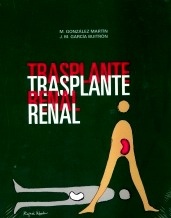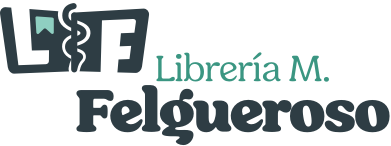Reseña o resumen
The new edition of Sport Nutrition: An Introduction to Energy Production and Performance presents the principles, background, and rationale for current nutrition guidelines specifically for athletes. Using a physiological basis, this text provides an in-depth look at the science behind sport nutrition. Students will come away with a comprehensive understanding of nutrition as it relates to sport and the influence of nutrition on exercise performance, training, and recovery.
Contents
Chapter 1. Nutrients
Function of Nutrients
Carbohydrate
Fat
Protein
Water
Vitamins, Minerals, and Trace Elements
Phytonutrients
Chapter 2. Nutrients and Recommended Intakes
Essential Nutrients
Development of Recommended Intakes
Current Recommended Intakes
Practical Guidelines for a Balanced Healthy Diet
Food Labels
Analyzing Dietary Intake
Chapter 3. Fuel Sources for Muscle and Exercise Metabolism
Subcellular Skeletal Muscle Structure
Force Generation in Skeletal Muscle
Fiber Types
Energy for Muscle Force Generation
Fuel Stores in Skeletal Muscle
Regulation of Energy Metabolism
Metabolic Responses to Exercise
Metabolic Adaptations to Exercise Training
Chapter 4. Energy
Energetic Efficiency
Measuring the Energy Content of Food
Measuring Energy Expenditure
Components of Energy Expenditure
Energy Balance
Chapter 5. Gastric Emptying, Digestion, and Absorption
Anatomy of the Gastrointestinal Tract
Regulation of the Gastrointestinal Tract
Digestion
Absorption
Function of Bacteria in the Colon
Regulation of Gastric Emptying
Gastrointestinal Problems During and After Exercise
Chapter 6. Carbohydrate
History
Role of Carbohydrate
Recommendations for Carbohydrate Intake
Carbohydrate Intake Days Before Competition
Carbohydrate Intake Hours Before Exercise
Carbohydrate Intake 30 to 60 Minutes Before Exercise
Carbohydrate During Exercise
Carbohydrate After Exercise
Chapter 7. Fat
Fat Metabolism During Exercise
Limits to Fat Oxidation
Fat as a Fuel During Exercise
Regulation of Carbohydrate and Fat Metabolism
Fat Supplementation and Exercise
Effect of Diet on Fat Metabolism and Performance
Chapter 8. Protein and Amino Acids
Amino Acids
Techniques to Study Protein and Amino Acid Metabolism
Protein Requirements for Exercise
Training and Protein Metabolism
Effect of Protein Intake on Protein Synthesis
Amino Acids as Ergogenic Aids
Protein Intake and Health Risks
Chapter 9. Water Requirements and Fluid Balance
Thermoregulation and Exercise in the Heat
Effects of Dehydration on Exercise Performance
Mechanisms of Heat Illness
Effects of Fluid Intake on Exercise Performance
Daily Water Balance
Fluid Requirements for Athletes
Chapter 10. Vitamins and Minerals
Water-Soluble and Fat-Soluble Vitamins
Recommended Intakes of Vitamins
Macrominerals and Microminerals
Recommended Intakes of Minerals
Critical Micronutrient Functions
Assessing Micronutrient Status
Exercise and Micronutrient Requirements
Ergogenic Effect of Micronutrient Supplementation
Recommendations for Micronutrient Intake in Athletes
Chapter 11. Nutrition Supplements
Nonregulation of Nutrition Supplements
Critical Evaluation of Nutrition Supplements Studies
Androstenedione
Bee Pollen
Beta Alanine and Carnosine
Beta-Hydroxy Beta Methylbutyrate
Boron
Caffeine
L-Carnitine
Choline
Chromium
Coenzyme Q10
Creatine
Dehydroepiandrosterone
Fish Oil
Ginseng
Glycerol
Inosine
Lactate Salts and Polylactate
Lecithin
Medium-Chain Triacylglycerol
Pangamic Acid
Phosphatidylserine
Phosphorus
Pyruvate (and Dihydroxyacetone)
Sodium Bicarbonate
Sodium Citrate
Vanadium
Wheat Germ Oil
Contamination of Nutrition Supplements
Chapter 12. Nutrition and Training Adaptations
Training Adaptations
Signal Transduction Pathways
Starting a Signaling Cascade
Secondary Signals
Nutrition Effects on Training Adaptations
Overtraining
Chapter 13. Body Composition
Optimal Body Weight and Composition
Body Composition Models
Normal Ranges of Body Weight and Body Fat
Chapter 14. Weight Management
Body Weight and Composition in Different Sports
Genetics
Energy and Macronutrient Intake
Regulation of Appetite
Effect of Exercise on Appetite
Physical Activity and Energy Expenditure
Dietary Weight-Loss Methods
Exercise for Weight Loss
Decreased Resting Metabolic Rate With Weight Loss
Weight Cycling
Gender Differences in Weight Loss
Practicalities of Weight Loss for Athletes
Defining the Strategy
Chapter 15. Eating Disorders in Athletes
Types of Eating Disorders
Prevalence of Eating Disorders in Athletes
Risk Factors
Effects of Eating Disorders on Sports Performance
Effects of Eating Disorders on the Athlete's Health
Treatment and Prevention of Eating Disorders
Chapter 16. Nutrition and Immune Function in Athletes
Functions of the Immune System and Its Cellular Components
General Mechanism of the Immune Response
Effects of Exercise on the Immune System
Nutritional Manipulations to Decrease Immunodepression in Athletes
Mechanisms of Nutritional Influences on Immune Function in Athletes
Conclusions and Recommendations
Appendix A. Key Concepts in Biological Chemistry Relevant to Sport Nutrition
Appendix B. Unit Conversion Tables
Appendix C. Recommended Daily Allowances for North America
Appendix D. Reference Nutrient Intakes for the United Kingdom
Appendix E. Recommended Dietary Intakes for Australia
Glossary
References
Index

